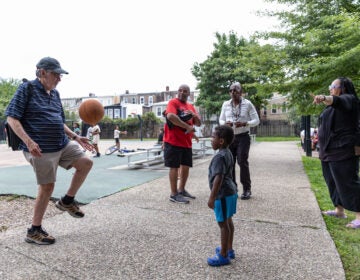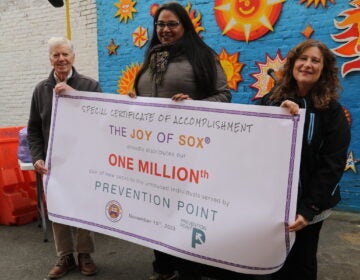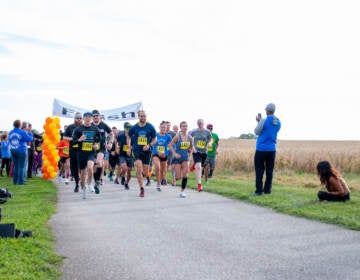Remembering those who died homeless on Philly’s streets
-
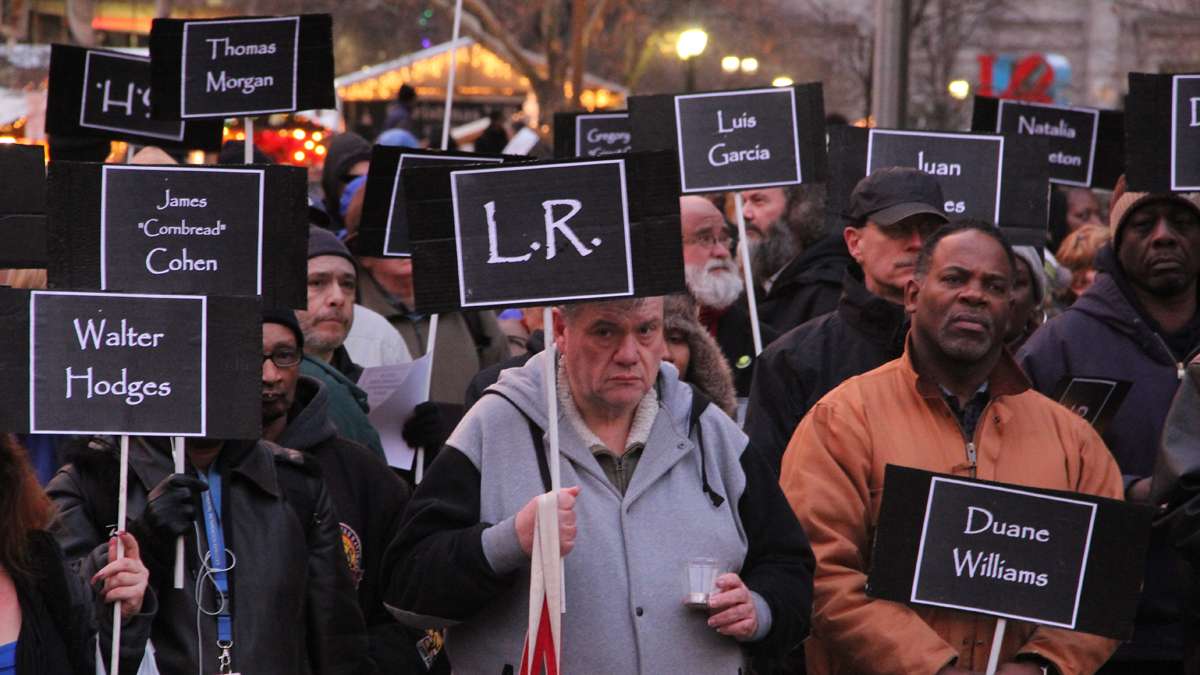
Participants in the Homeless Memorial Day ceremony carry signs bearing the names of 127 homeless and formerly homeless people who died in 2013. (Emma Lee/for NewsWorks)
-
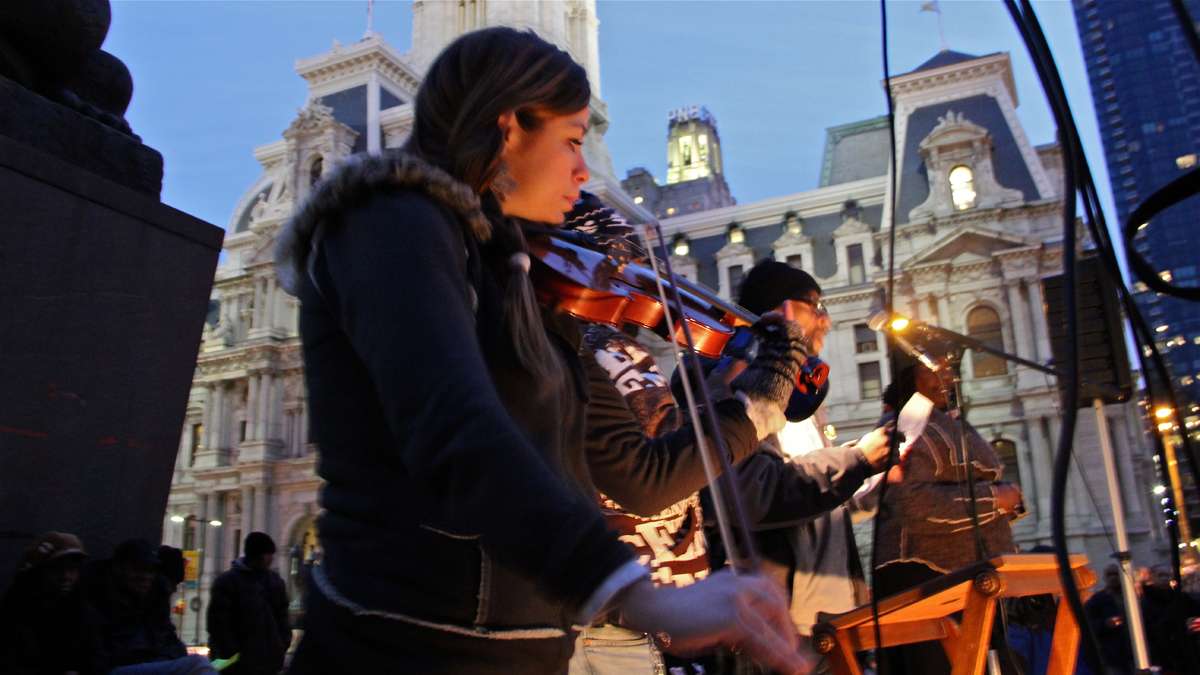
Shandi Beardsley plays Pachebel's Canon in D Minor as volunteers step to the microphone to read off the names of the homeless who died in 2013. (Emma Lee/for NewsWorks)
-
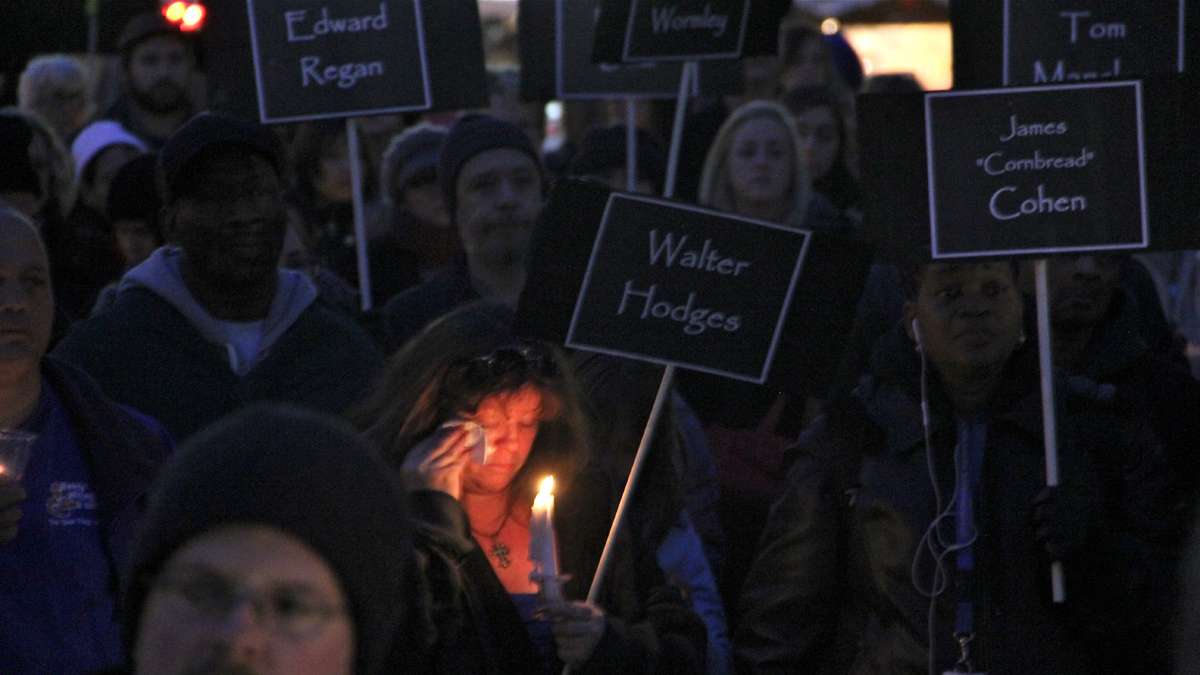
Project Home volunteer Deborah Young wipes away tears during a memorial ceremony for the homeless. (Emma Lee/for NewsWorks)
-
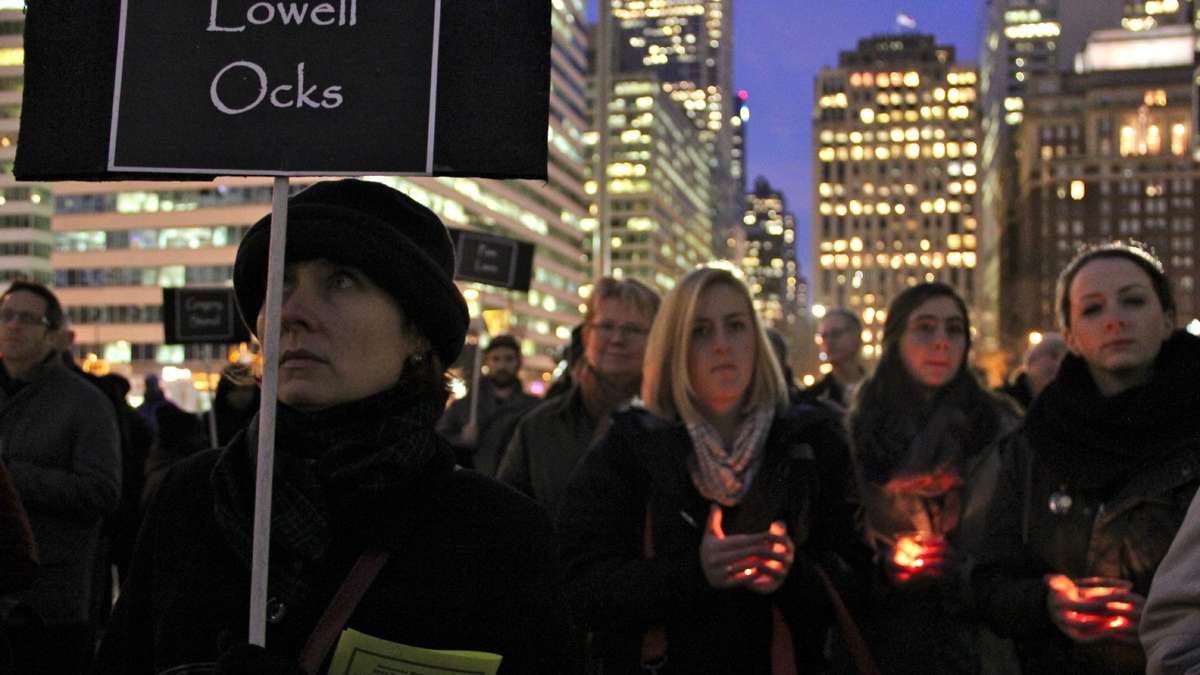
With signs and candles, Philadelphians gather at Thomas Paine Plaza to remember the homeless who died in 2013. (Emma Lee/for NewsWorks)
-
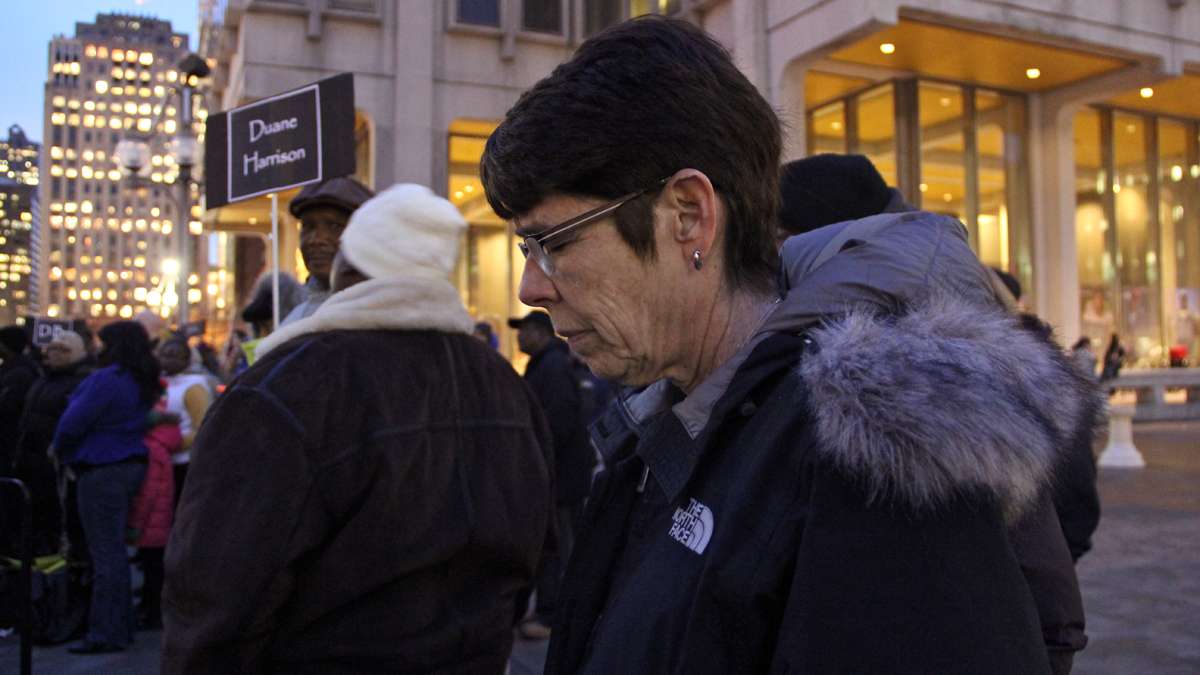
Sister Mary Scullion bows her head as 127 names are read in memory of Philadelphia's homeless who died in 2013. (Emma Lee/for NewsWorks)
-
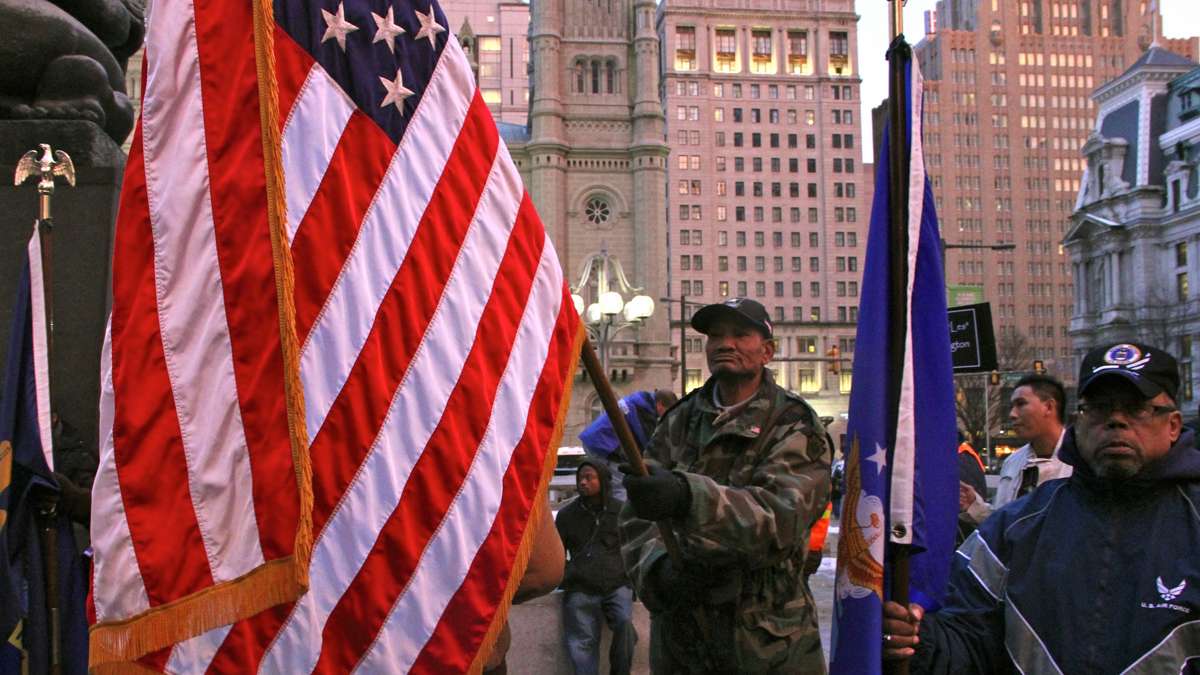
Veteran Eric Taylor, who says he was homeless for four years, carries the flag in honor of the homeless who have died, and his fellow veterans. (Emma Lee/for NewsWorks)
-
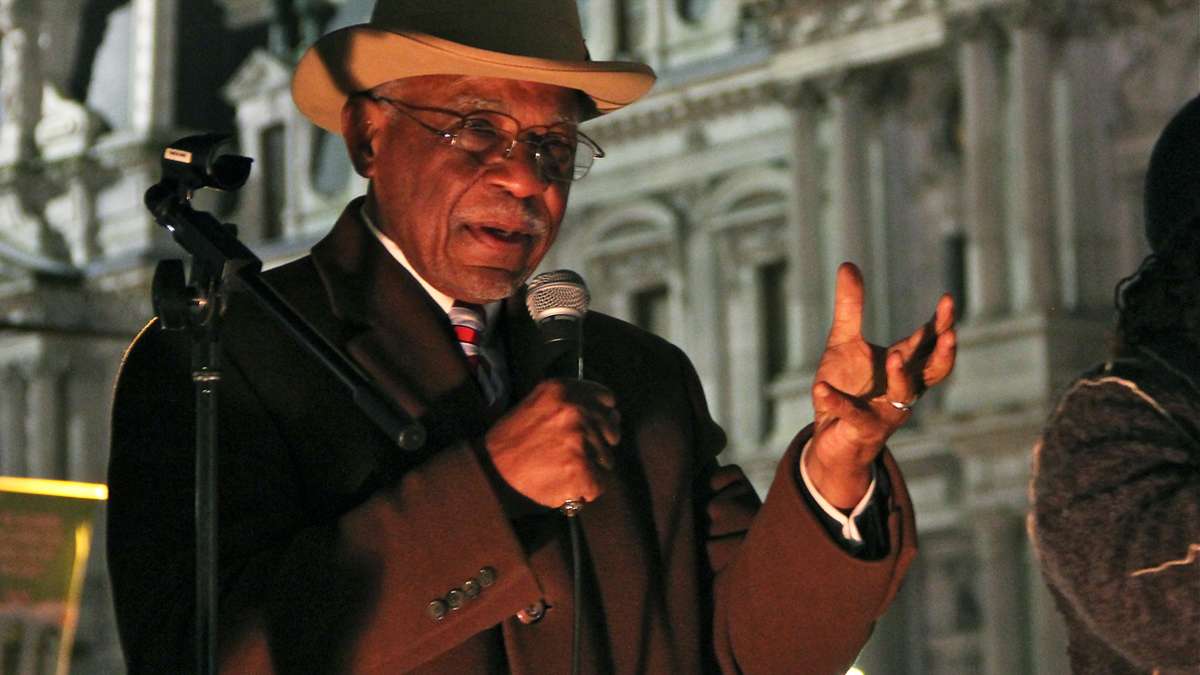
Former Philadelphia Mayor Wilson Goode thanks those who came out to remember the homeless and reminds them of the work that needs to be done. (Emma Lee/for NewsWorks)
-
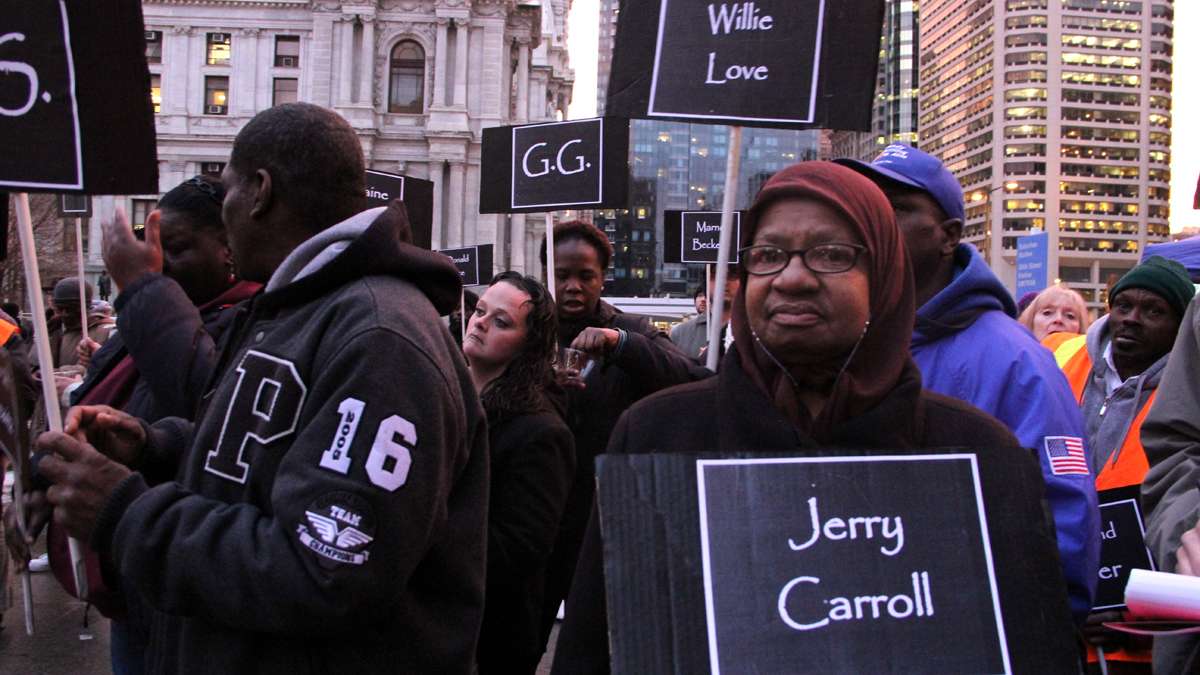
Charlene Wells carries a sign for Jerry Carroll, a man she remembered would ask for change for coffee. She heard he died on the street. (Emma Lee/for NewsWorks)
Violinist Shandi Beardsley played Pachebel’s Canon in D Minor, a personal favorite, as volunteers took turns at the microphone reading the names of 127 homeless and formerly homeless people who died in Philadelphia in 2013.
About 200 people had gathered at Thomas Paine Plaza, in the shadow of City Hall, with candles and signs bearing the names of the fallen. Beardsley cried as she played, moved by the pathos of the moment and her own situation. Beardsley recently lost her home in West Chester and custody of her 3-year-old daughter. Although she never lived on the streets, she felt empathy for those who had died there.
Despite her brush with homelessness, Beardsley hadn’t set out this mild December evening to pay tribute to the homeless. After two months in Philadelphia, she had finally worked up the nerve to try her hand at busking, performing on the street for donations. She set up shop at 15th and Market streets, where she was approached by an organizer of Homeless Memorial Day. He asked her if she would play for the ceremony.
“I was honored he asked me,” she said. “I’m happy to be a part of something like this.”
According to the advocacy group Project HOME, a 2013 census found nearly 500 people living on the streets of Philadelphia. During the course of an average year, 45 die. The 127 who were remembered at Paine Plaza included the formerly homeless because people who experience homelessness at some point during their lives are more likely to die prematurely than those who have not.
Charlene Wells counts herself among the formerly homeless. Caught up in drugs and alcohol, she lived on the streets for six years. She carried a sign for Jerry Carroll, a man she knew who roamed the area around Thomas Paine Plaza, asking for change for a cup of coffee.
“I know what it’s like being out here in the cold, not knowing where your next meal is coming from,” she said. A prison sentence changed her life.
“I went upstate for 15 months and I was rescued,” she said. When she got out, sober and drug free, she was welcomed back by her family.
WHYY is your source for fact-based, in-depth journalism and information. As a nonprofit organization, we rely on financial support from readers like you. Please give today.



